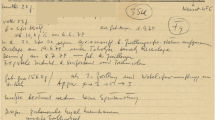Abstract
Evidence-based clinical practice guidelines have been widely used as an objective rating instrument for assessing the content quality of health care information on the web. In many previous studies, human raters check the concordance between text content and evidence-based practice guidelines in order to evaluate information accuracy and completeness. However, human rating cannot be a practical solution, particularly when there is an extremely large volume of health care information on the web. This study explores a semantics-based approach to identify health care information content in web documents with reference to evidence-based health care guidelines. With this approach terms and phrases in English are extracted and transformed into semantic concepts and units. Thus, web text is transformed, sentence by sentence, into a semantic representation which computer programs can classify depending on whether the content of a sentence is in concordance with evidence-based guidelines or not. Through aggregating the classification result of all sentences in a web document, computer programs are able to generate for each document a quality score indicating the number of unique evidence-based guidelines that are referred to in the document. In a test using a set of depression treatment web pages and evidence-based clinical guidelines, the quality rating performance of the computer system is shown to be close to human quality rating performance.
Access this chapter
Tax calculation will be finalised at checkout
Purchases are for personal use only
Similar content being viewed by others
References
Barnes, C., Harvey, R., Wilde, A., et al.: Review of the quality of information on bipolar disorder on the internet. Aust. N. Z. J. Psychiatry 43(10), 934–945 (2009)
Burkell, J.: Health care information seals of approval: what do they signify? Inf. Commun. So. 7(4), 491–509 (2004)
Chen, L.E., Minkes, R.K., Langer, J.C.: Pediatric surgery on the internet: is the truth out there? J. Pediatr. Surg. 35(8), 1179–1182 (2000)
Crocco, A.G., Villasis-Keever, M., Jadad, A.R.: Analysis of cases of harm associated with use of health care information on the internet. J. Am. Med. Assoc. 287(21), 2869–2871 (2002)
Eysenbach, G., Powell, J., Kuss, O., Sa, E.: Empirical studies assessing the quality of health care information for consumers on the world wide web. J. Am. Med. Assoc. 287(20), 2691–2700 (2002)
Frické, M., Fallis, D.: Verifiable health care information on the internet. J. Educ. Libr. Inf. Sci. 43(4), 246–253 (2002)
Griffiths, K.M., Christensen, H.: Website quality indicators for consumers. J. Med. Internet Res 7(5), e55 (2005). http://www.jmir.org/2005/5/e55/
Griffiths, K.M., Tang, T.T., Hawking, D., Christensen, H.: Automated assessment of the quality of depression websites. J. Med. Internet Res. 7(5), e59 (2005). http://www.jmir.org/2005/5/e59/
HONcode: Honcode: Principles — quality and trustworthy health care information (2012). http://www.hon.ch/HONcode/Conduct.html
Khazaal, Y., Chatton, A., Zullino, D., Khan, R.: Hon label and discern as content quality indicators of health-related websites. Psychiatr. Q. 83(1), 15–27 (2012)
Kiley, R.: Does the internet harm health? some evidence does exist that the internet harms health. BMJ 323(7331), 328–329 (2002)
Kunst, H., Groot, D., Latthe, P., Latthe, M., Khan, K.S.: Accuracy of information on apparently credible websites: survey of five common health topics. BMJ 321(7337), 581–582 (2002)
Martin-Facklam, M., Kostrzewa, M., Martin, P., Haefili, W.E.: Quality of drug information on the world wide web and strategies to improve pages with poor information quality: an intervention study on pages about sildenafil. Br. J. Clin. Pharmacol. 57(1), 80–85 (2003)
Pew Internet and American Life Project: Internet health resources (2003). http://www.pewinternet.org/~/media//Files/Reports/2003/PIP$_$Health$_$Report$_$July$_$2003.pdf
Pew Internet and American Life Project: Online health search 2006 (2006). http://www.pewinternet.org/~/media/Files/Reports/2006/PIP$_$Online$_$Health$_$2006.pdf
Pew Internet and American Life Project: The social life of health care information (2011). http://pewinternet.org/Reports/2011/Social-Life-of-Health-Info.aspx
Podichetty, V.K., Booher, J., Whitfield, M., Biscup, R.S.: Assessment of internet use and effects among healthcare professionals: a cross sectional survey. Postgrad. Med. J. 82, 274–279 (2006)
Silberg, W.M., Lundberg, G.D., Musaccio, R.A.: Assessing, controlling, and assuring the quality of medical information on the internet: caveat lector et viewor-let the reader and viewer beware. J. Am. Med. Assoc. 277(15), 1244–1245 (1997)
Smith, A.: Evaluation of information sources the world-wide web virtual library. http://www.vuw.ac.nz/staff/alastair$_$smith/avaln/evaln.htm (2002)
Wang, Y., Liu, Z.: Automatic detecting indicators for quality of health care information on the Web. Int. J. Med. Inform. 76, 575–582 (2007)
Zhang, Y.: Semantics-based automated quality assessment of depression treatment web documents. Ph.D. thesis, The University of Western Ontario, London, Ontario, Canada (2012)
Author information
Authors and Affiliations
Corresponding author
Editor information
Editors and Affiliations
Rights and permissions
Copyright information
© 2023 Springer Nature Switzerland AG
About this paper
Cite this paper
Zhang, Y., Mercer, R.E., Burkell, J., Cui, H. (2023). Using Shallow Semantic Analysis to Implement Automated Quality Assessment of Web Health Care Information. In: Gelbukh, A. (eds) Computational Linguistics and Intelligent Text Processing. CICLing 2018. Lecture Notes in Computer Science, vol 13397. Springer, Cham. https://doi.org/10.1007/978-3-031-23804-8_2
Download citation
DOI: https://doi.org/10.1007/978-3-031-23804-8_2
Published:
Publisher Name: Springer, Cham
Print ISBN: 978-3-031-23803-1
Online ISBN: 978-3-031-23804-8
eBook Packages: Computer ScienceComputer Science (R0)




